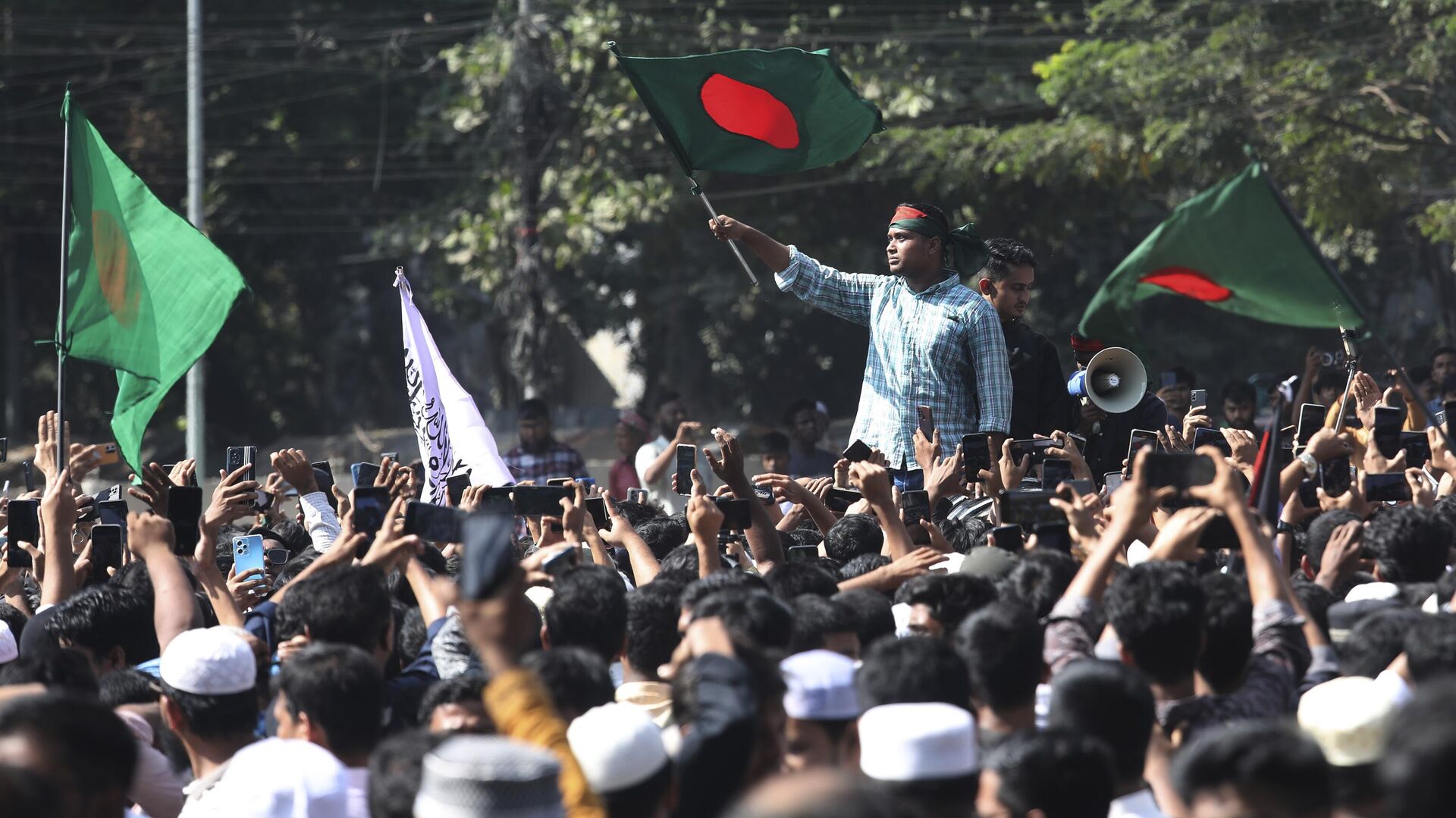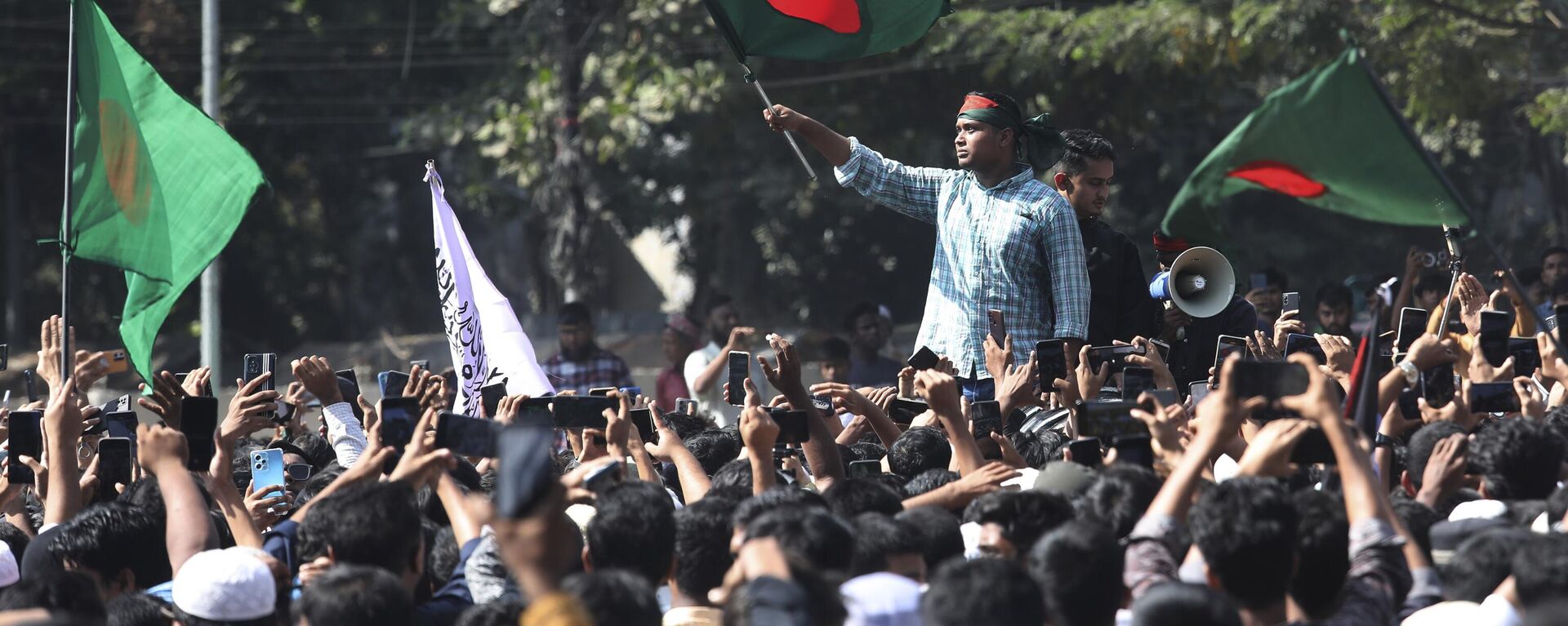How Rising Radicalism in Bangladesh Fuels Instability, Poses Threats to India's Borders

"As someone who has operated within insurgent networks and later collaborated with India's Research and Analysis Wing (R&AW), I understand the ground-level realities of threats posed by extremist Islamist groups in Bangladesh," Kagusthan Ariaratnam, who served in the LTTE as a child soldier before joining India's external spy agency R&AW as an informant, told Sputnik India.
Interestingly, Ariaratnam's remarks come amid a wave of attacks on Hindus in Bangladesh that has drawn global attention and criticism, including from India.
After making repeated denials about reports of the persecution of Hindus in the country, the interim government spearheaded by Muhammad Yunus, finally admitted to at least 88 incidents of arson against members of the minority community that forms approximately 8 percent of the Bangladeshi population.
This marked U-turn in the Yunus administration's stance came after Indian Foreign Secretary Vikram Misri visited Dhaka earlier this week and urged the state authorities to ensure the safety of Hindus and other minorities in Bangladesh.
The acts of arson and violence against Hindus are reportedly being perpetrated by hardline Islamist outfits like Jamaat-e-Islami* (JI) that were previously banned by the Sheikh Hasina-led government. However, Yunus lifted those sanctions after he was picked to lead Bangladesh after Hasina fled to India on August 5.
Ariaratnam believes that the rising influence of groups like Jamaat-e-Islami in Bangladesh is deeply concerning, especially for religious minorities like Hindus, who often become scapegoats in the power struggles of extremist factions and these attacks not only undermine their safety but also threaten the region's stability.
"Having operated in insurgency-hit regions myself, I can tell you that a more radicalised Bangladesh would embolden groups on both sides of the border. This could result in increased infiltration, arms smuggling, and cross-border support for anti-India elements, particularly in the already fragile Northeast," the author of the best-selling book "Spy Tiger: The 05 File", added.


